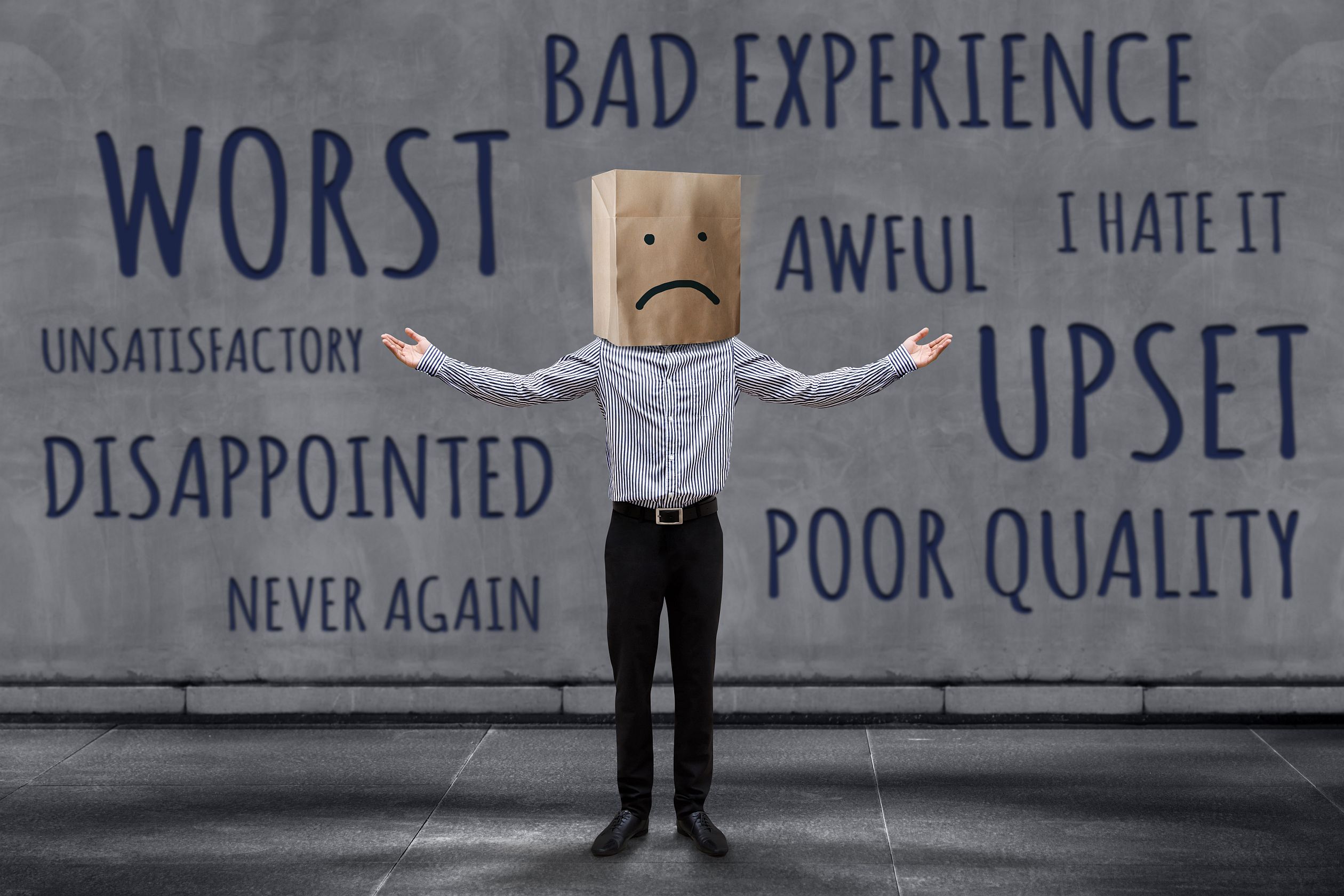By:
“Not everything that is faced can be changed, but nothing can be changed until it is faced.”
― James Baldwin
Contents – Links to sections in page 1 (tap / click to open)
Notice: Beware of Misleading Cost Estimates From Uneducated Publishers
Some real estate sales web sites are showing falsely low costs. Their estimated periodic cost numbers are misleading. Clearly they have poor knowledge of how manufactured housing parks operate. They mistakenly treat manufactured homes in parks as they would regular site-built homes (AKA stick-built). But site-built homes don’t have monthly land rental fees like manufactured home parks.
In addition to normal homeownership costs (mortgage, maintenance, insurance and utilities) manufactured homes in parks have land rent costs that are usually a significant portion of the cost of living in the park (see “Average Space Rents” for example). These rental costs are also known as space rent or lot rent costs.
Unfortunately, some real estate sales organizations fail to mention space rent in addition to the other home ownership costs. Additionally, land rent costs may be hard for homeowners to predict into the future because some landlords may hike rents higher than homeowners expect. This can happen when the park is sold to a corporate park aggregator or when management changes.
Some publishers may list “HOA fees” along with the estimated mobile home park costs. The HOA fee they describe is often the land rental fee. Although misnamed, at least the additional cost is included in the information. But there may be both HOA fees and land rental costs required in some parks. Buyers should inquire about missing cost information and question the accuracy of publishers.
The mistaken real estate web sites fail to mention the trapped nature of the manufactured home owner in a privately-owned park. The homeowner’s most expensive and immovable asset is permanently attached to potentially ever-increasing and sometimes unpredictable rental costs.
To be a smart shopper, you should consider ALL the conditions before you buy. Publishers should cease and desist presenting misleading consumer information.
A Balance Against Hype
Some have said this post is negative and “down” on manufactured housing parks. Yet others have said they wish they knew about this list earlier. This list contains valuable and necessary consumer information.
To be clear: Manufactured housing in parks can be an excellent form of housing. Not only can park living be affordable but it also helps cities increase housing density to reduce the burden of sprawl. Modern manufactured homes help reduce global warming, waste and pollution. With the right landlords, homeowners can build equity in their houses. This site promotes success with manufactured housing for homeowners and communities by balancing benefits against risks.
The Hidden Conditions of Mobile Home Park Living
When you are shopping to buy a house in a mobile home park, look for the big picture business practice items, not just the consumer comfort items. Yes, it may be important to you that you can have pets or that there is a basketball court or swimming pool, but when you own a house on rented land, there are more serious things to think about.
Often unwritten and unspoken are the hidden circumstances you accept when you move into a for-profit park. Think about the potentially costly surprises you never expected. These can include rent raises, park neglect, staffing issues, the enforcement of rules and regulations, the strictness of evictions and how well complaints are processed. And think about whether the entire park business will be sold to a profiteer that increases your costs and lowers your home’s value.
Most mobile home parks are for-profit businesses. Businesses can be shut down or closed with the buildings removed and the land put to another use. Too often, mobile home park homeowners are oblivious to these business issues and instead focus on their house and consumer comfort items. But the park’s business practices can change—resulting in less homeowner security.
These big picture items are not merely comfort conveniences, but are serious financial survival issues. If you are concerned about saving money and getting long-term stability, you need to understand the hidden system you are buying into when you rent land.
The Hidden Secrets of the Mobile Home Park Land Rental System
When you buy a home in a for-profit park where you rent the land, you are “buying” into two things: you are taking possession of the physical house and you are also accepting something less visible—a hidden system. Mobile home owners have less control over the system and less freedom compared to renting a typical apartment or buying a site-built home.
Too many consumers appear to be focused on their house in the park and not focused enough on the system associated with land rental. This system may vary somewhat from state-to-state and local laws may alter it, but generally, across the nation, a park dweller is submitting to an unwritten, undisclosed system.
Why Are Important Living Conditions Hidden?
The conditions aren’t being covered up – manufactured home owners are seldom being deceived by park landlords. But neither are the conditions made explicit. Apartment and site-built homes don’t have these conditions. Or, as with apartments, renters are less vulnerable. Park residents that previously lived in other types of housing may be unschooled and overlook potential risks.
If you have experience with mobile home park business practices and lease agreements, you can figure out the weaknesses by carefully reading the lease, the rules, and the law. But those skills (and time) are rare – so the vulnerabilities remain buried.
In the past, it wasn’t as necessary to know about hidden conditions because small business landlords seldom took advantage of their customers’ vulnerabilities. There was less need to guarantee anything in writing when good customer relations was widely practiced. and taken for granted.. The “free market” and competition between parks pressured park owners to compete by providing better value for their customers.
Today, it is rare to find full disclosure of hidden conditions to prospective customers. The hidden conditions are implied in the lease contracts, but most homebuyers are not proficient at interpreting land leases. Complete transparency and consumer warnings are not upfront.
In earlier times, park owners had to compete by providing better customer relations, better features, better service, better maintenance and higher standards of quality. The typical park owner was once more motivated to bolster his public image and reputation. That situation created more of a “social contract” composed of good business practices. Renters of land in mobile home parks felt that this implicit social agreement existed between themselves and their landlords. They assumed that decency and a sense of fairness prevailed – that consumer protections existed. But such social contracts are not enforceable by law and are open to wide interpretation.
This vagueness may not be a problem for homeowners in some parks – if their park is well-managed and stays that way. But homeowners sometimes report worsening changes in park ownership, policies and management.
Where Do the Hidden Conditions Come From?
Some of these hidden conditions are part of the nature of this form of housing – house immovability lowers homeowner options. Other conditions come indirectly from the landlord. Some conditions are the result of the reuse of old-style lease contracts that were more appropriate for vacation trailers and RV parks. In vacation RV parks, the customer could drive his shelter away from landlord-caused problems. Yet today, the same style of land use agreements are being applied to unmovable manufactured houses in permanent housing tracts. Landlords often require homeowners to commit to lease contracts ranging from 5 to 25 years giving further evidence of permanent residents being forced to live under under vagabond tourist-oriented laws (most mobile home park leases are non-negotiable).
In time, this lack of homeowner security caused by unaddressed conditions became an opportunity for predatory park owners to make more money. The old unwritten “social contract” that landlords once obeyed became optional and could now be violated for profit without much consequence.
Some governments attempt to enforce minimum mobile home park standards, usually concerning health and safety. But most citizens want more than the bare minimums of habitability, which can be scarcely tolerable. Homeowners want a good margin of safety that exceeds the bare minimums. However, few governments attempt to regulate park business practices – leaving the mobile home owners to fend for themselves. The park residents may slowly discover that the landlord has too much discretionary power.
Solutions are difficult to achieve because government leaders and the general public may believe that manufactured home tracts are just a trailer parks where homeowners can simply tow the home away from landlord problems. They may think that the potential threat of moving the home is all that is needed to force landlords to provide better service. They may be oblivious to the fact that mobile home park residents are actually settled people, not travelers, and that their homes are permanently rooted to potentially insecure land.
In short, the vulnerabilities – the threats to manufactured home owners in for-profit parks always existed. But in the past, there were fewer landlords with the character to exploit them for maximum profit.
Here are the main elements of the hidden conditions a mobile home owner can encounter when renting land. This does not constitute legal advice and may vary somewhat based on location.
DON’T DESPAIR!
Not all of these vulnerabilities may exist in any manufactured housing park. These vulnerabilities can be minimized with better-written lease contracts or government law. The park industry could establish a code of ethics and work to enforce it. However, at this time, very few guaranteed protections exist. Buyer beware.
This list is provided as a guide for consumers to use when evaluating a park – as things to consider. In some places there are efforts underway to improve homeowner conditions and legal rights. Residents can join an advocacy group to improve community prosperity and support affordable housing.
Hidden Condition # 1
You Cannot Easily Move a Typical Manufactured Mobile Home
Modern wide and double-wide manufactured mobile homes are not built to travel. Once they age, they can become loose and damaged from road vibration. Practically all “mobile” homes are not really “mobile” due to high moving costs, lack of practical locations to move to, and park bans on receiving used homes over 5 years old.
Today’s large manufactured homes are really small houses and require moving by a professional crew and big rig truck—costing many thousands to tens of thousands to hire. If the house is double-wide, the halves will need to be split apart for transport and rejoined at the new site. Park landscaping and cleanup requirements may bring additional expense. After meeting all those requirements, the home may arrive at its new location with damage from road vibration—forcing more expense for repairs.
Competent professionals will warn homeowners about the expense and risk of moving a used manufactured mobile home, especially over long distances – road vibration may loosen it and homes built for the climate in a particular region may not meet the construction requirements for the destination region. A good professional may suggest that the homeowner put the home up for sale as it stands in the park, rather than attempt to move it. This is the typical way homeowners move out of a park – they sell the home and find another place to live.
However, if the home is new, maybe 5 years or younger, it may be a good candidate for moving assuming all the other requirements are met. A competent professional should evaluate your home before you make this expensive commitment.
Selling the House Instead of Moving It.
If the conditions in the park become something you cannot live with, such as high rent or when management changes or the park is neglected, you will likely sell the immobile home where it sits so you can exit the park. As long as the deed to the home is in your name, you may have to pay rent for the land, no matter whether you live there or not. Sometimes a lower rental rate can be negotiated for an empty house – ask your sales agent for help. If park conditions have worsened, you may have to offer the home at a low price to attract buyers.
Losses on home equity can happen if the park conditions have changed negatively, such as increased cost of living in the park due to rising rent. This situation may be prolonged if the potential buyers are experiencing delays being approved, and, as time passes, the obligation to pay land rent continues. Sometimes, homeowners desperate to be free of high rent, just “walk away”, as it is called. This can be a big mistake. See here for ways to avoid a costly “walk-away”.
However, in regions where affordable housing is in great demand, homeowners may be able to sell their homes to buyers in spite of the park conditions. Too often, new buyers are more focused on securing shelter quickly without much due diligence – unaware of all the risks and future costs covered in this post.
Hidden Condition # 2
You Can’t Sell Your Home to Just Anybody of Your Choosing
The landlord has the final choice over who will rent the land, and thus, who will live in the house. This may or may not work well for home sellers. Remember, conventional sales only involve two parties; the buyer and the seller. But in mobile home parks, it is three parties that influence a house sale; the buyer, the seller and the landlord.
Usually, the landlord cannot directly decide who buys your home, but he can choose who he allows to rent the land underneath. If the landlord does not want to rent land to the potential new home buyer, then, obviously, the buyer will not want to buy the home. A buyer must be found that is approved by the landlord for renting the land. This process can delay or interfere with the sale of the home.
There may be good reasons for a landlord to reject your potential buyer. Some buyers may be getting in over their head and not good for the neighborhood. If the landlord is maintaining minimum standards, it may good for everyone to reject some buyers from renting the land.
However, an experienced mobile home sales agent should find buyers for your home and help streamline the process of getting the home title transferred and the buyer approved by the landlord to rent the land. Mobile home parks may be too complex to use the direct “for sale by owner” method.
Some residents report that they believe there are unnecessary delays approving their buyer. Delays can demotivate buyers to withdraw the offer and buy another house. Sellers report that they can’t oversee the approval decision process— that it is done in secret and that the decision-maker may have arbitrary criteria and too much discretionary authority.
Some homeowners claim that delays may be used as retaliation if the homeowner is not liked by the landlord, perhaps due to complaints or activism. Those sellers may feel forced to lower their asking prices when faced with too many delays of buyer approvals. If this happens to you, an experienced sales agent may be able to navigate around this problem.
Hidden Condition # 3
Your Housing Security May Change When the Land Beneath Your Home is Sold to Another Landlord
When the park business is sold to another landlord, you still retain ownership of your house, and your land-lease is still valid, but the conditions of land rental and park management may change, for better or worse—and your house is permanently situated in the middle of these changes.
Often you have no choice about park business sale transactions and you may not know that the park has been sold until afterwards. Homeowners cannot choose their new landlord. If you previously had a good lease agreement, the new landlord is usually obligated to honor it. But in some cases, you may have to defend your lease in court at your own expense. If your lease agreement has potential loopholes or if you don’t have a firm lease agreement at all, you may be vulnerable to sudden changes that you may not like.
Some park services you believe you are paying for may not be guaranteed in writing. They may be performed at the landlord’s discretion or “good will”. Examples may be how often the management will maintain the park, keep the office open, patrol the park and cite violators and so on.
If the new landlord wants to cut expenses to increase profit, these unwritten services may be on the list and cutting them may affect the quality of the park and may lower your living conditions and house value. And, of course, unless you have firm rent increase maximums in your contract, you may experience rent hikes that compound over time, reducing the affordability of your housing or even forcing you to leave.
Hidden Condition # 4
Park Livability Depends on the Landlord’s “Good Will”
Livability is several things; A reliable, secure shelter; affordability; and predictability. You provide the living shelter yourself, but affordability and a reasonably reliable future are not often under your control. These are controlled by the landlord of the for-profit mobile home park.
There are few contractual requirements on the landlord about those necessary conditions for your housing security. Much of the livability is up to the landlord’s arbitrary discretion, even his whims. Conditions that you need for housing and financial security may not be clearly defined with legally binding agreements. Instead, you have to hope you have a “good” park owner—one with healthy personality traits.
Typically, these “good will” business–customer relationships are unwritten policies and practices known as maintaining a “good reputation” or “good customer relationships” often referred to as a “social contract“. That is, they are neither laws nor solid contractual obligations.
Reputation was once an important factor when mobile home parks were owned by local businessmen who were part of the nearby community. But social pressure is not the sole factor motivating good reputation development. It is normal and healthy to care about how you are perceived in the community. Now that large, wealthy absentee owners are aggregating parks and pressuring their customers for more money, they may show less concern about their reputation.
Even if you feel there are currently good “relationships” between landlord and tenants, and you “like” the manager, there are few, if any, guarantees that conditions will stay that way. Yet, you have based your financial situation and housing security upon these hopes. Residents have reported unwanted changes when their park was sold or the “good” landlord passed away.
It may be a mistake to believe that your friendship with management or his nice personality and good-sounding words will be all that you need for your long-term housing and financial security. Some mobile home park investors may make a point of presenting a “good guy” image to placate homeowners and avoid binding obligations. With fewer obligations, their investment in the mobile home park may be worth more money.
In such cases, residents can only rely on the terms in their lease contracts and their own ability and resources to enforce them. These contracts may say little or nothing about ensuring housing security and maintaining good park operating standards
On Page 2 are eight more issues that mobile home owners report. And some solutions that homeowners pursued.






